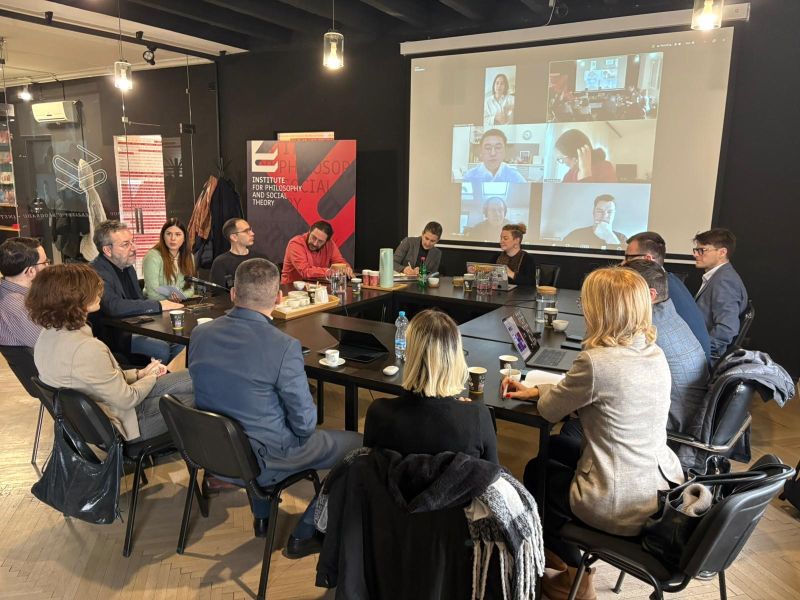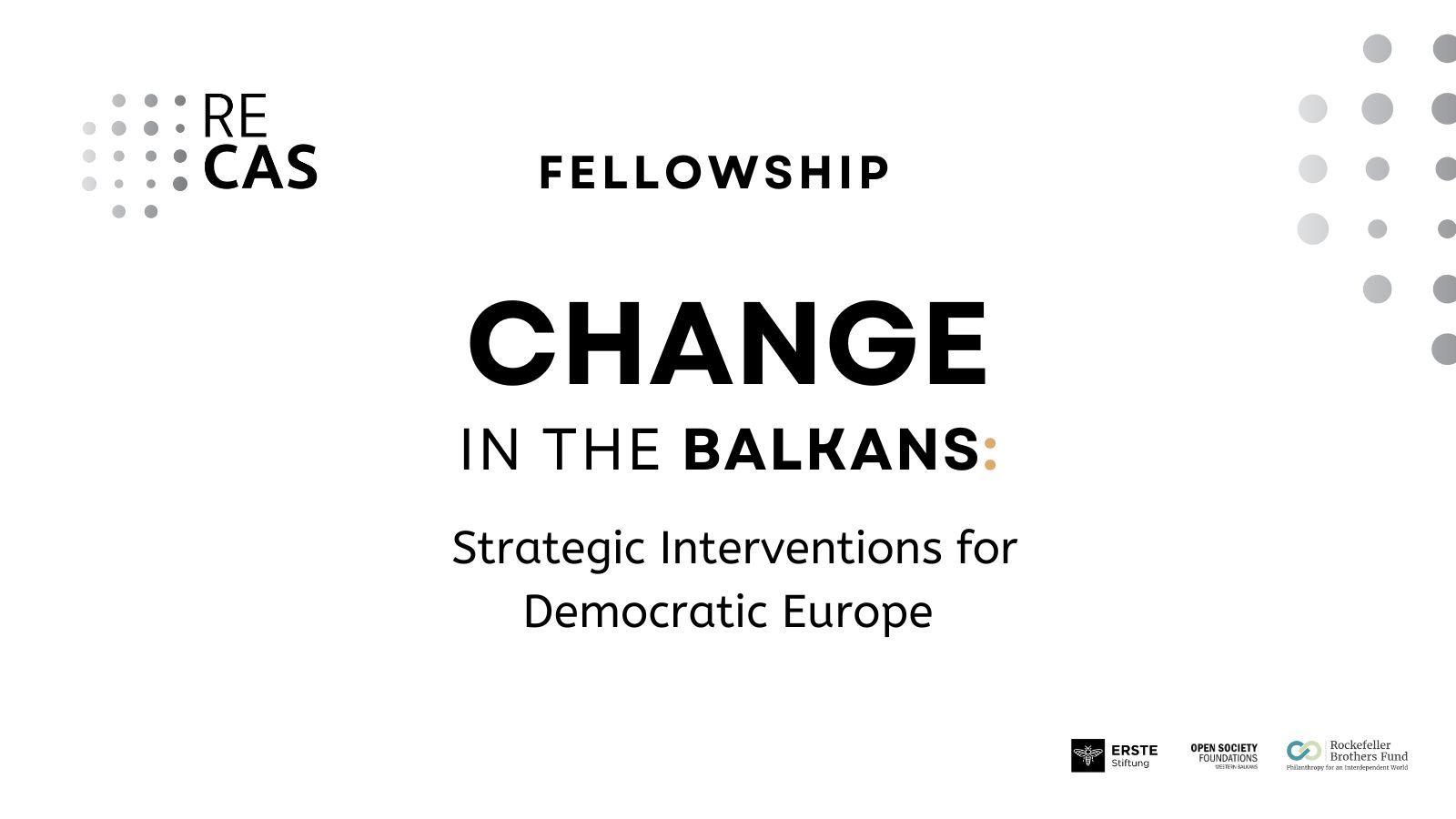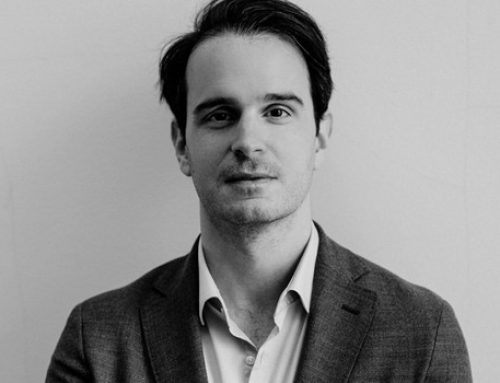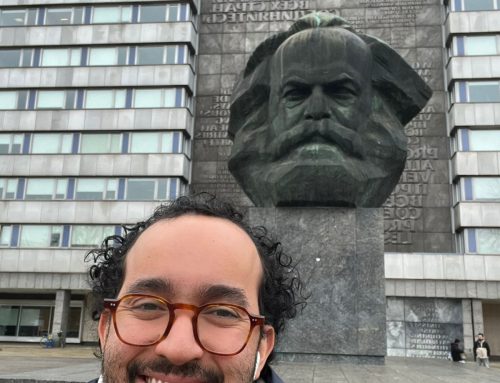The Regional Network of Centers for Advanced Studies in Southeast Europe (RECAS) proudly announced the selection of 15 outstanding fellows for its 2025 Regional Fellowship Program. Following a competitive application process, these fellows represent diverse disciplines and innovative research projects addressing this year’s theme, “Change in the Balkans – Strategic Interventions for Democratic Europe.”
This year’s fellowship theme focuses on addressing interconnected challenges in economic, digital, and green transitions across the Balkans, aiming to inspire action-oriented solutions and strengthen democratic resilience in the region. Key areas include fostering regional innovation ecosystems, and exploring alternative economic models to promote equitable development, examining grassroots initiatives, environmental justice, and regional strategies for addressing pollution, renewable energy adoption, and ecological preservation, exploring ethical AI, cybersecurity, innovation drivers, and the role of digital platforms in reshaping cultural and civic participation.
Together, these projects aim to provide actionable insights into how the region can navigate its economic, environmental, and digital challenges while fostering democratic resilience and regional collaboration.
The program, hosted in partnership with leading universities across Southeast Europe, provides fellows the opportunity to pursue their research projects while fostering regional academic collaboration. Fellows will receive host support at the Universities of Rijeka and Belgrade, with the option to choose co-hosts at Universities of Skopje, Sarajevo, Ljubljana, Prishtina, Tirana or Podgorica.
Apart from the individual work the fellows will take part in CAS Uni online seminar, capacity building workshops and public events aimed at promoting their research not only to academic community but to wider public, thus contributing to knowledge production and shaping the solutions to key challenges.
Fellowships are enabled by Open Society Foundation Western Balkans, ERSTE Foundation and Rockefeller Brothers Fund in the framework of supporting brain circulation for democratic development in Southeast Europe.
The Fellowship within the Regional Network of Centers of Advanced Studies in the Western Balkan (RECAS) project, led by the Institute of Philosophy and Social Theory (IFDT) officially launched the 2025 Fellowship with a capacity-building workshop. This event brought together the 2025 Cohort of Fellows, hosted at IFDT in Belgrade on 20th of December, with some participants joining online to accommodate diverse locations.
The workshop commenced with a warm welcome from Gazela Pudar Draško, representing IFDT, and Sanja Bojanić from CAS UNIRI. Petar Bojanić, one of the Fellowship's coordinators, facilitated an engaging roundtable discussion, providing an opportunity for the Fellows to introduce themselves and share their expectations for the program.
The 2025 RECAS Fellowship welcomes a diverse cohort of scholars dedicated to exploring pressing regional and global issues through innovative and policy-relevant research.
- Milo Ivančević (Montenegro) investigates the role of AI adoption by central banks in the Western Balkans to enhance financial stability.
- Olimpija Hristova Zaevska (North Macedonia) explores the potential of Industry 4.0 ecosystems to drive regional innovation across the Western Balkans.
- Aida Kapetanović (Bosnia and Herzegovina) examines the regional networking, framing, and policies behind the "Let's Defend the Balkan Rivers" movement for river protection in Southeast Europe.
- Eleni Oikonomaki (Greece) conducts empirical and geospatial analyses to identify the determinants of innovation in the region.
- Emina Buzinkić (Croatia) delves into migrant workers' COUNTER economies in Croatia and Slovenia.
- Miloš Kovačević (Serbia) studies economic democracy through a comparative analysis of Employee Stock Ownership Plans (ESOP) in Slovenia, Croatia, and Serbia.
- Ognjen Kojanić (Serbia) explores grassroots relationships with urban infrastructure to support a just green transition in the Balkans.
- Safet Kubat (Bosnia and Herzegovina) introduces the concept of the "Balkan Doughnut," investigating pathways to a green transformation.
- Haisheng Hu (Slovenia) examines how the Belt and Road Initiative can support economic, digital, and green transitions in the Western Balkans, contributing to democratic resilience.
- Ljubiša Bojić (Serbia) focuses on aligning AI with democratic resilience, addressing digital challenges in the Balkans through ethical AI implementation.
- Jasna Jovićević (Serbia) explores gendered migration and reintegration strategies for Balkan female jazz musicians in her project, "Should I Stay or Should I Go."
- Slađana Kavarić Mandić (Montenegro) investigates the transformative potential of regional ecological thought through artistic practices in museums of contemporary art in Rijeka, Podgorica, and Belgrade.
- Gentjan Skara (Albania) analyzes the challenges of competition law enforcement posed by online giants in Western Balkan countries.
- Peter Langford (EU) aims to assist environmental movements, organizations, and political parties in the Balkans by strengthening their understanding of environmental justice.
This workshop focused on equipping participants with essential skills to enhance the policy relevance of their research and improve their ability to communicate their findings effectively. The session began with an overview of the basics of public policy, introducing the fellows to the key components of the policy cycle and the general frameworks that guide policy development and implementation. Through interactive discussions and expert-led presentations, fellows gained a clearer understanding of how to align their original research with pressing policy challenges, making their academic work impactful beyond scholarly circles.In addition to theoretical insights, the workshop provided practical guidance on drafting effective policy papers, which fellows are expected to complete by the end of their tenure. Participants received tips and tricks for structuring their papers to resonate with policymakers, including strategies for clarity, conciseness, and evidence-based argumentation. By the end of the workshop, fellows were equipped with both conceptual knowledge and actionable tools to bridge the gap between academic research and public policy, ensuring their contributions support informed decision-making in their respective fields.
To ensure a fruitful year ahead, Irena Molnar guided the Fellows through the carefully designed program, outlining its objectives and highlighting the key activities and opportunities they will engage in during the Fellowship.
This event set a collaborative tone for the year, emphasizing the program's commitment to academic excellence and policy engagement, and providing a platform for Fellows to connect, exchange ideas, and begin their journey as part of the RECAS network.






